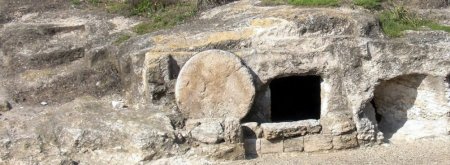Is There Truth in the Story of Christmas?
It is common at Christmas to hear 'experts' questioning the Gospel accounts. They make their pronouncements with something approaching glee, claiming that there is not a shred of evidence outside the Gospel of Luke for a census at the time of Jesus' birth; Matthew's hovering star over Bethlehem is a fiction; and the virgin birth is the neurotic invention of a church trying to distance the Son of God from any association with sex.
Then there are questions about the date of Jesus' supposed birth. December 25 was a pagan festival until it was hijacked, we are told, by a church desperate for relevance. Evidence that the starting point of the Western calendar, AD 1, cannot have been the year of Jesus's nativity helps the sceptics' case, and we are left with the impression that perhaps Jesus never lived at all. Maybe the whole thing is a fable with no more credibility than Santa Claus. And, like that story, thinking adults ought to grow out of it.
But while much of this is factually correct, it is ultimately wrong. Take the absence of corroborating evidence for the Roman census, the visit of foreign Magi or the great star. The sceptics would have us think, if these things really did take place, there would be mention of them in other sources. But scholars of antiquity often note we probably have in our possession less than 1 per cent of the literary works that existed in the first century. Ninety-nine per cent of our evidence is lost.
...we probably have in our possession less than 1 per cent of the literary works that existed in the first century. Ninety-nine per cent of our evidence is lost.
“As every student of ancient history is aware”, Professor Graham Stanton of Cambridge University writes, “it is an elementary error to suppose that the unmentioned did not exist.” With only 1 per cent of the evidence to hand, it is foolhardy to deny something just because it appears in a single source.
As recently as June 2004, a large public pool mentioned only in John's Gospel – and so doubted by some – was uncovered during sewerage works in Jerusalem.
It is true there is no corroborating evidence for the finer details of the Christmas story but it is wrong, and wrong-headed, to turn this into evidence that they are untrue. People are free not to trust what the Gospels report, but this is a choice based on a preference, not an argument arising from evidence.
What, then, of the problems with dating Christmas? It is true December 25 marked the recovery of the Invincible Sun for ancient pagans, and about AD 330 this date was adopted by the Roman church as a celebration of Christ's nativity.
Christianity was fast becoming the dominant faith in this period and so, rather than cancel a happy festival, Christians decided to transpose it into a more appropriate religious key. In any case, when this date was adopted there was no suggestion that Jesus was actually born on December 25, any more than it is now believed all horses are born on August 1.
The year of Jesus' birth is a little more complicated but no more suspicious. According to Matthew and Luke – Gospels written independently – Herod was still alive at the time of Jesus' birth. From firm dates provided by the first century writer Josephus, we know Herod died in early 4 BC. This means Jesus was born some time before that – between 6 BC and 4 BC.
The man who gave us the calendar distinction between BC and AD, an Italian mathematician and archivist named Denis the Little, got the calculation slightly wrong. In AD 525 Pope St John asked Denis to sift through the available sources and propose the most likely anno Domini, or ‘year of the Lord’. He missed the mark by about five years – not bad considering his limited resources.
We now know the exact dates for figures such as Herod, so can more accurately date Jesus' birth.
But none of this should add to the repertoire of reasons to be suspicious about the Jesus story. After all, there is a larger point which seems to be lost on some sceptics.
Historians agree there really was a ‘first Noel’, a date somewhere between 6 BC and 4 BC when a famed teacher and healer named Jesus (soon to be hailed Messiah) was born in humble circumstances. Only an arbitrary kind of scepticism can deny this.
The Virgin Birth, of course, cannot be decided by historical argument. This one involves philosophical assumptions. If you hold that the laws of nature are the only things regulating the universe, then no amount of evidence could convince you that Mary conceived “of the Holy Spirit”.
If, however, you accept there probably is a law-giver behind those natural laws, then such an idea is not philosophically insurmountable. After creating a universe, fashioning another 23 chromosomes would be a walk in the park for the Almighty.
The traditional Christmas story won't be going away. It will continue to be a source of wonder and hope for millions of believers and curious alike.
What the historian can confidently say about this strange claim in Matthew and Luke is that, whatever inspired it, it certainly had nothing to do with an awkwardness about sex. Ancient Judaism, from which the Gospels drew their influence, celebrated sex. There's a whole book of the Bible about it (Song of Songs). The curiosity for the historian is that, in a culture comfortable with the idea of ‘sacred seed’, the Gospels say Jesus was born without it.
Sceptics will continue to mock. That's their right and preference. But such cynicism is not a natural consequence of a sober examination of the historical realities. The traditional Christmas story won't be going away. It will continue to be a source of wonder and hope for millions of believers and curious alike.


